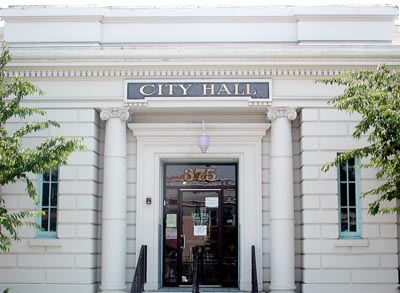If Hollister’s cost and revenue figures stay on the current
track, the city would run deficits for two more years before the
rainy-day reserve is out of cash.
HOLLISTER
If Hollister’s cost and revenue figures stay on the current track, the city would run deficits for two more years before the rainy-day reserve is out of cash.
That was the outlook discussed by council members over the last two days at budget hearings as the city prepares for a likely adoption in early July and a potential revision in October after the state budget becomes clear.
Among the key points of discussion was the Measure T sales tax. In the 2009-10 fiscal year, even with $2.1 million in projected Measure T sales tax funneled directly into the deficit, Hollister still would be about $1.7 million in the red for the year, City Manager Clint Quilter said.
Such a prospect leaves city officials and council members with no other option than to change course and either find a way to significantly raise revenue or eventually cut costs in the next two years.
It is a startling trend line for a city with hopes in late 2007 – when voters approved Measure T – of having between $3 million to $4 million in additional revenue annually to go toward widespread service increases. Since that time, however, downturns in the retail and housing sectors of the economy in particular have marred Hollister’s finances.
Also adding to the burden on the cost side have been pay increases and new employee hirings to coincide with Measure T efforts to add some positions – while most of those slots have been left unfilled. The pay increases and additional hires have added nearly $1 million to the 2009-10 budget on top of the slate of expenses in the prior fiscal year, Quilter said.
With nothing done, the general fund reserve – the rainy-day fund – would drop to about $2 million by the end of this next fiscal year.
“Given the size of our budgets, it’s not the end of the world,” Quilter said of the $2 million reserve amount. “But we don’t want to (be there).”
Quilter noted how council members plan to revisit the budget, probably in October, for a potential revision depending on what action the state takes. City officials have concerns about funds that are filtered through the state – such as $4 to $5 million in tax revenue and $3 million in motor vehicle fees – and what might happen to a portion of that money, Quilter said.










